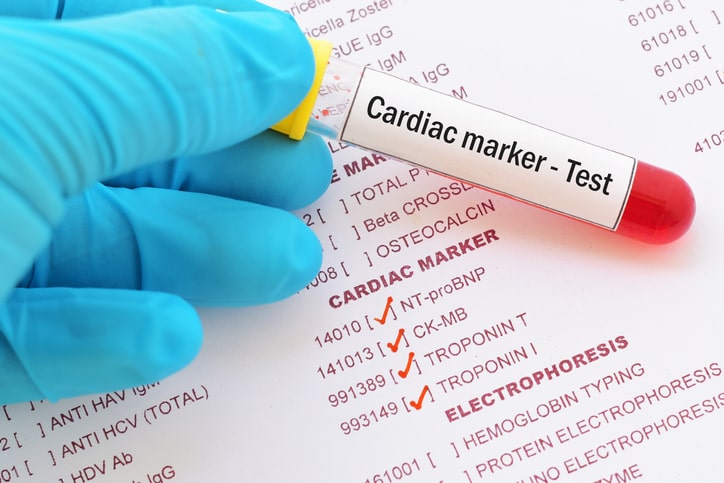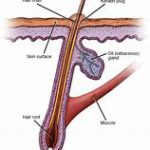Last Updated on 1 year by Francis
If you’ve ever had a blood test that showed elevated heart enzymes, you may be wondering what it means. While elevated enzymes can be a sign of something serious, the good news is that it is not always a cause for concern. In this article, we will explore what elevated heart enzymes mean and the potential causes, treatments, and preventative measures that can be taken.
Elevated heart enzymes can indicate that the heart is damaged or is under stress. It is important to note that elevated heart enzymes do not necessarily indicate a heart attack, but should be discussed with a doctor. A doctor may order tests to determine the cause of the elevated enzymes. Treatment depends on the cause and may involve lifestyle changes, medications, surgery, or other treatments.

Contents
What are Elevated Heart Enzymes?
Elevated heart enzymes are proteins that are released into the bloodstream when the heart is damaged or stressed. This release of proteins is called “myocardial enzyme release” or “myocardial ischemia.” Elevated heart enzymes are a sign of a heart attack, and they can be used to diagnose the condition. The most commonly measured enzymes are creatine kinase (CK), troponin I and troponin T.
Elevated heart enzymes are also known as cardiac biomarkers. These biomarkers are measured in the blood and they help to diagnose and assess the severity of heart problems. Elevated heart enzymes may indicate a heart attack, heart failure, or other heart diseases or conditions. The level of these enzymes can also help to predict the risk of future heart problems.
Elevated heart enzymes can also be an indication of inflammation and other non-heart related conditions. In these cases, further testing is needed to determine the cause of the elevated enzymes.
What Causes Elevated Heart Enzymes?
Elevated heart enzymes are usually caused by a heart attack or other forms of heart damage. When the heart is damaged, the cells that line the heart’s walls release enzymes into the bloodstream. These enzymes indicate the presence of heart damage.
Other causes of elevated heart enzymes include coronary artery disease, heart failure, aortic stenosis, and arrhythmia. In addition, some medications, such as ACE inhibitors, can also cause elevated heart enzymes.
Elevated heart enzymes may also be caused by inflammation, liver or kidney disease, or other non-heart related conditions.
How Are Elevated Heart Enzymes Diagnosed?
Elevated heart enzymes are usually diagnosed with a blood test. The test measures the level of the enzymes in the blood. If the level of the enzymes is higher than normal, it can indicate a heart problem.
In some cases, further testing is needed to determine the cause of the elevated enzymes. This may include a cardiac stress test, an echocardiogram, or a coronary angiogram.
What Are Normal Levels?
Normal levels of elevated heart enzymes vary depending on the type of enzyme being measured. Generally, a normal level of CK is less than 250 U/L, a normal level of troponin I is less than 0.4 ng/mL, and a normal level of troponin T is less than 0.1 ng/mL.
What Are the Treatment Options?
The treatment of elevated heart enzymes depends on the underlying cause. Treatment may include lifestyle changes, medications, or surgery.
In cases of a heart attack, treatment may include medications to dissolve or break up blood clots, medications to improve heart function, and lifestyle changes to reduce the risk of future heart problems.
In cases of coronary artery disease, treatment may include lifestyle changes and medications to reduce cholesterol and blood pressure. Surgery may be recommended if lifestyle changes and medications are not enough to reduce the risk of future heart problems.
What Are the Complications?
Elevated heart enzymes can lead to serious complications, including heart attack, stroke, and death. Therefore, it is important to seek medical attention if you have symptoms of a heart problem.
In addition, elevated heart enzymes can increase the risk of future heart problems, such as heart attack and stroke. Therefore, it is important to follow your doctor’s instructions regarding lifestyle changes, medications, and follow-up visits.
Top 6 Frequently Asked Questions
What are Heart Enzymes?
Heart enzymes are proteins that are released by the heart when it is damaged. These enzymes are released from the cells of the heart and are found in the blood. They are used to diagnose heart problems and to monitor treatment. The most common heart enzymes are troponin, CK, and myoglobin. These enzymes can be measured with a blood test. Elevated levels of these enzymes can indicate that there has been some damage to the heart muscle.
What Does Elevated Heart Enzymes Mean?
Elevated heart enzymes mean that there has been some damage to the heart muscle. This can be caused by a heart attack, an inflamed heart muscle, or a problem with the heart’s electrical system. Elevated heart enzymes can also indicate an infection in the heart, an abnormal heart rhythm, or an enlarged heart. In some cases, elevated heart enzymes can be caused by physical stress or medications.
What Are the Symptoms of Elevated Heart Enzymes?
The symptoms of elevated heart enzymes can vary depending on the underlying cause. Common symptoms include chest pain, shortness of breath, palpitations, fatigue, and dizziness. Other symptoms can include nausea, sweating, and pain that radiates down the arm. If you experience any of these symptoms, it is important to seek medical attention right away.
How Are Elevated Heart Enzymes Diagnosed?
Elevated heart enzymes are usually diagnosed with a blood test. The blood test measures the levels of certain heart enzymes in the blood. If the levels of these enzymes are higher than normal, it may indicate that there has been some damage to the heart muscle. Your doctor may also order other tests, such as an electrocardiogram, echocardiogram, or imaging tests to diagnose the cause of the elevated enzyme levels.
What Are the Treatments for Elevated Heart Enzymes?
The treatment for elevated heart enzymes depends on the underlying cause. If the cause is a heart attack, treatment may include medication to open the blocked artery and restore blood flow to the heart. If the cause is an inflamed heart muscle, treatment may include medication to reduce inflammation and symptoms. If the cause is an infection, treatment may include antibiotics. Your doctor may also recommend lifestyle changes, such as quitting smoking, exercising regularly, and eating a healthy diet.
Are There Any Complications From Elevated Heart Enzymes?
Yes, there can be complications from elevated heart enzymes. If the underlying cause is not treated, it can lead to more serious problems, such as heart failure or arrhythmias. In rare cases, it can lead to sudden cardiac death. It is important to seek medical attention if you are experiencing any symptoms of elevated heart enzymes.
Elevated Cardiac Enzymes : Causes & Significance – Dr. Prabhakar Shetty
In conclusion, elevated heart enzymes can be a sign of an underlying health issue and should not be taken lightly. If you experience any symptoms associated with elevated heart enzymes, it is important to seek medical advice from your doctor immediately. Taking steps to improve your lifestyle, such as eating a healthy diet and exercising regularly, can help reduce your risk of elevated heart enzymes and other heart-related issues.








